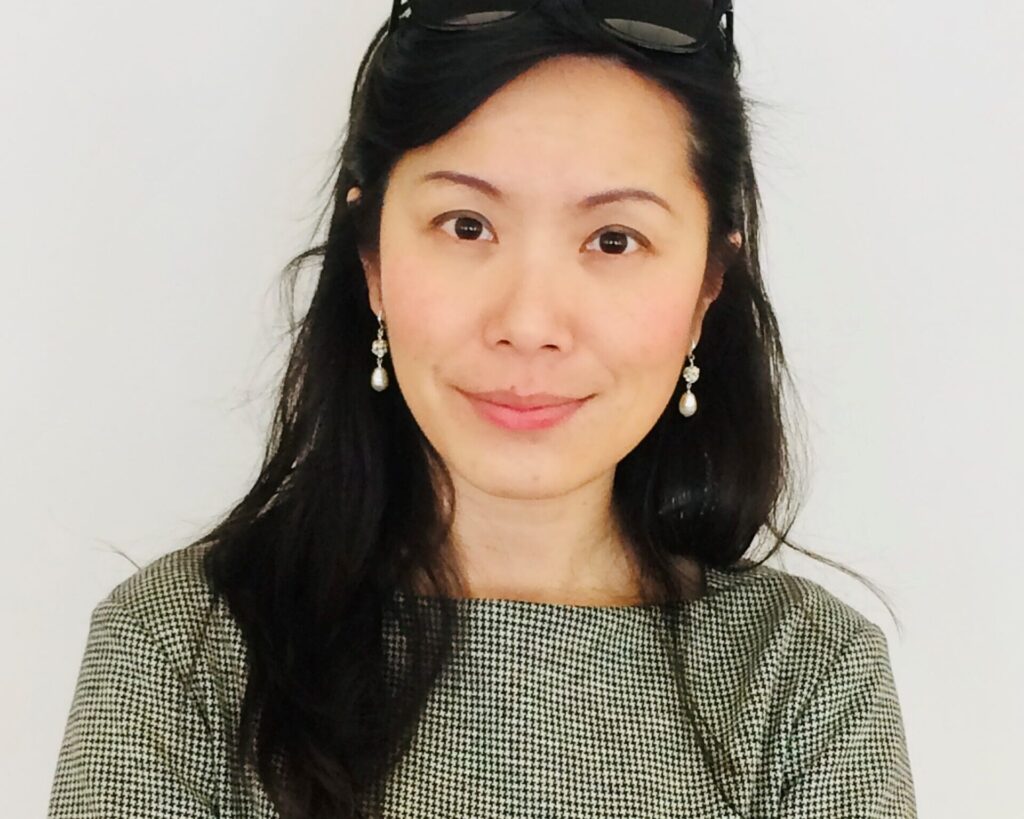Q&A: Professor Lin Fang on partnering with parents to confront anti-Asian racism
Categories: Faculty, Lin Fang, Q & A, Research
Launched in 2023, the Asian Parents Participatory Action Project (Project APPA), led by Professor Lin Fang, has been working with Asian parents as collaborators in research. The project’s goal is to build an Asian-centered approach to countering the anti-Asian racism experienced by the parent’s children, themselves, and others. The project promises to break cycles of silence around talking about racism — and build strength in community. We spoke to Dr. Fang about what inspired her research and how it will impact future generations.

Professor Lin Fang
What inspired your research working with Asian parents?
I became interested in working with Asian parents after studying the impact of racism and discrimination that Asian youth were experiencing during the COVID-19 pandemic. I quickly realized that COVID was a catalyst for rising anti-Asian hate, but the youth in my study had also experienced anti-Asian racism and discrimination prior to the pandemic, from a very young age. They shared memories from elementary school of being made fun of for how they looked or being told their lunch smelled and looked like worms. Sometimes teachers would skip over them in class as their ethnic names were difficult to pronounce. These examples may seem minuscule, but I have learned from the youth that they can have long-term effects. Kids often internalize these comments and think: something must be wrong with me — something is wrong with my eyes, my homemade food, and my name.
Most of the youth in my study said that they didn’t discuss the discrimination and racism they were experiencing with their parents. Many said they didn’t want to talk to their parents about anything to do with racism because they felt their parents might not understand and would not be able to help. Some felt bad about these comments and felt embarrassed to discuss them with their parents. Some of the youth who did reach out to their parents described being told to simply “let it go” or “keep your head down.” I became curious about this and wondered how Asian parents really felt. Did they really not want to talk about it? And if so, why?
What have you learned from your research so far?
I got a small grant from the Faculty to start this research in 2022. I began with the Chinese community, speaking to over 50 parents who shared that they found anti-Asian racism difficult to talk about for a range of reasons.
For many immigrant parents, race and ethnicity are new constructs for them; they are grappling with what these terms mean. Additionally, as immigrants, some parents said they felt like guests in a new country, and they did’t want to stick out or take up too much space. There’s the idea that the xenophobia will eventually die down after they have been here a while. They think they might be made fun of for their accents and English skills, but their kids, who were born here, will not. They assume it’s better for the next generation and therefore not an issue. Some parents, regardless of their immigration generation status, worry that discussing racism might damage their children’s self-esteem. They expect schools to help teach these concepts.
The Asian parents who did want to talk about racism often experienced it both as a child and as an adult. But despite their own experiences with racism, they still felt uncertain about how to talk to their kids about it because their own parents avoided the topic with them. Towards the end of the focus groups, parents across the board wanted to know about resources that could help them have these conversations. It’s worth noting that if you google “how to talk to my kids about race and racism,” there are tons of resources, but there is very little specific to Asian parents. There’s very little scholarly literature on this topic as well.
How do your findings relate to your own experiences?
I experienced a lot of overt racism when I was younger. When I realized that this is still happening with the next generation, I thought, oh my, this didn’t stop with me. The racial narratives and stereotypes continue to be reproduced in our children’s lives, and if we don’t take any action now, it’s not going to get better. Particularly heartbreaking is the tendency for youth to absorb racists ideas. It’s like one finger may point to the person making racist comments to say, you are wrong! But the other four fingers often point back at yourself, with thoughts like, there must be something wrong with me because I don’t meet white beauty standards or white cultural standards. That internalization, which is often initially adopted as a coping mechanism, is quite damaging. I knew we needed to start somewhere, and that’s why I decided to start with parents.
How are you approaching this work?
Across the board, parents have been asking for resources to help them talk about racism with their kids, so I thought: we really need to get into action mode. My previous study focused on Chinese parents only. For this study, I received a SSHRC Partnership Development Grant, which is allowing me to work with broader Asian communities such as Chinese, Korean, and Filipino communities, among others. We are also working with several community organizations, grassroot groups, as well as the Toronto Catholic District School Board. We started to work with Asian parents as peer researchers to engage in meaningful conversations and co-learnings, and now we are in the stage of focus groups, where we will continue to learn about the parents’ experiences as both caregivers and individuals.
The next stage will focus on working with the parents on resource development — building up resources by the community for the community. The parents are not just research participants; they are content developers! At the end of the day, this is a project that is by the parents and for the parents. In the meantime, we are really trying to create a community for Asian parents to support and learn from one another. One thing I’ve learned is that racism is not something you should deal with alone. We need to work together to build strength to fight back, and if we work with parents and get everyone to support one another, parents will feel empowered to support their children. There will be a lasting impact for generations to come.
Interested in getting involved in the Project APPA study?
Project APPA is looking for parents or caregivers who:
- Self-identify as Asian and reside in Canada
- Care for at least one child currently in kindergarten to grade 12.
- Speak one of the following languages: Cantonese, English, Korean, Mandarin or Tagalog.
- Are willing to participate in two focus groups on Zoom.
Each focus group is 90 to 120 minutes long. Participants will receive a $40 e-transfer for each focus group attended.
📌 Project APPA Email: myscriptmyvoice@utoronto.ca
📌 Project APPA Expression of Interest Form
APPA Partners
- Chinese Canadian National Council Toronto Chapter (CCNCTO)
- Fil-Can Educators Network (FCEN)
- Fil-Can Social and Community Workers Network (FCSCWN)
- Hong Fook Mental Health Association (HFMHA)
- Toronto Catholic District School Board (TCDSB)
- The Asian Canadian Living Archive (TACLA)
Building understanding through Art-based engagement
When Professor Lin Fang wanted to learn more about anti-Asian racism during the pandemic, she and Hong Fook Mental Health Association worked with youth in the Greater Toronto Area to share their perspectives and reflections through photography, visual arts, poetry, essay reflections, and video.
“Arts-based engagement provides space for creative output and reflection that can sometimes be more difficult to convey through interviews or surveys,” says Fang. “Sharing the artwork that the youth produce also helps us engage broader audiences with the topic, by helping them better understand what anti-Asian racism looks like and feels like in practice. Expressing experiences through art can allow for broader understanding.”
Visit the My Script, My Voice website to view videos by youth who participated in the Digital Storytelling Initiative and more.
Click here to read an essay by one of the Youth who participated in the My Script, My Voice project.
Related posts:
- Lin Fangs speaks about anti-Asian racism in Canada at global meeting
- “It Goes under the Radar!”: Study by Lin Fang, Eunjung Lee and collaborators examine youths’ experiences of anti-Asian racism
- Report on anti-Asian racism during the COVID-19 pandemic highlights the experiences of members of Toronto’s Chinese Canadian community
- Social work professors collaborate with community organizations to explore experiences of anti-Asian racism and develop strategies to address the crisis
- Vivian Leung’s research on immigration and anti-Asian racism is supporting families and social work practitioners